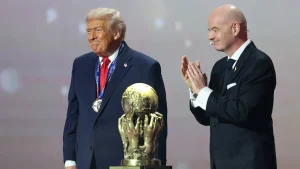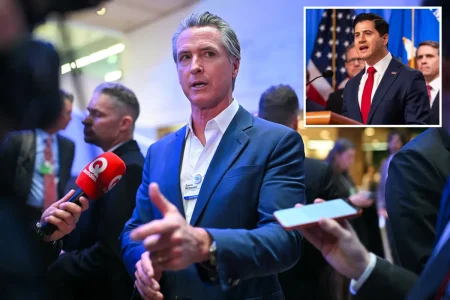Trump’s Stance on Vaccines: Science Takes a Backseat
In a recent news conference, President Trump presented views on vaccines that starkly contradicted established scientific consensus. Rather than embracing the overwhelming evidence supporting vaccine safety and efficacy, Trump perpetuated several misleading narratives that have concerned public health officials. His statements reflected a troubling pattern of disregarding scientific expertise in favor of political messaging that resonates with vaccine-skeptical segments of his base. While claiming to support vaccination in principle, his numerous caveats and misleading claims effectively undermined confidence in one of medicine’s most important public health tools.
The scientific community has consistently emphasized that modern vaccines undergo rigorous testing before approval, with safety monitoring continuing well after they reach the market. Yet President Trump suggested a different reality, implying that vaccines are rushed through approval without adequate safety checks. He specifically targeted the childhood vaccination schedule, suggesting without evidence that the current recommended timing of vaccines might be overwhelming children’s immune systems. This directly contradicts findings from multiple comprehensive studies showing that the vaccine schedule is safe and that delaying vaccines only leaves children vulnerable to preventable diseases for longer periods. His comments particularly alarmed pediatricians, who routinely witness the consequences when preventable diseases affect unvaccinated children.
Perhaps most concerning was Trump’s revival of debunked theories linking vaccines to autism, a claim he has promoted since before his presidency despite overwhelming scientific evidence to the contrary. Large-scale epidemiological studies involving millions of children have repeatedly found no connection between vaccines and autism spectrum disorders. The original study suggesting such a link was retracted years ago after being exposed for methodological flaws and ethical violations. By continuing to suggest this connection might exist, Trump lent presidential credibility to a dangerous misconception that has led to decreased vaccination rates and disease outbreaks in communities across the country. Public health experts were quick to point out that such statements could further erode trust in vaccines at a time when maintaining high vaccination rates is crucial for community protection.
During the conference, Trump also emphasized personal choice in vaccination decisions without acknowledging the community impact of those choices. While framing vaccine hesitancy as merely a matter of individual rights, he overlooked the fundamental concept of herd immunity that protects vulnerable populations like infants too young to be vaccinated, elderly individuals, and immunocompromised patients. Medical experts stress that vaccines are unique among medical interventions because they affect not just the individual receiving them but entire communities. When vaccination rates drop below certain thresholds, previously controlled diseases can resurge, as demonstrated by recent measles outbreaks in areas with low vaccination coverage. Trump’s individualistic framing failed to address this critical aspect of public health policy, potentially undermining decades of progress in disease prevention.
The president’s comments about vaccine manufacturers similarly departed from factual ground. He implied that pharmaceutical companies prioritize profits over safety, suggesting without evidence that industry influence corrupts the vaccine approval process. While healthy skepticism of corporate influence is warranted, Trump’s characterization ignored the extensive regulatory oversight that vaccines undergo through multiple independent review processes. The FDA, CDC, and numerous international health organizations continuously monitor vaccine safety through sophisticated surveillance systems designed to detect even rare adverse events. Furthermore, independent scientific advisory committees comprising experts with no financial ties to manufacturers review the data before recommending vaccines. By suggesting this entire system is compromised, Trump undermined public confidence in institutions essential to public health protection.
Health officials worry that presidential skepticism toward vaccines could have lasting consequences beyond the current administration. Vaccine hesitancy has already been recognized by the World Health Organization as one of the top ten threats to global health, with declining vaccination rates threatening to reverse progress against preventable diseases worldwide. When such views receive endorsement from the highest political office, they can become further entrenched in public discourse and harder for health professionals to address. Public health experts emphasize that rebuilding trust in vaccines requires clear, consistent messaging based on scientific evidence rather than political calculation. They urge political leaders across the spectrum to separate vaccine policy from partisan politics and unite behind the overwhelming scientific consensus: vaccines save lives, prevent suffering, and represent one of humanity’s greatest public health achievements.










